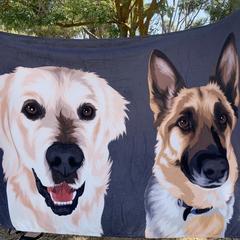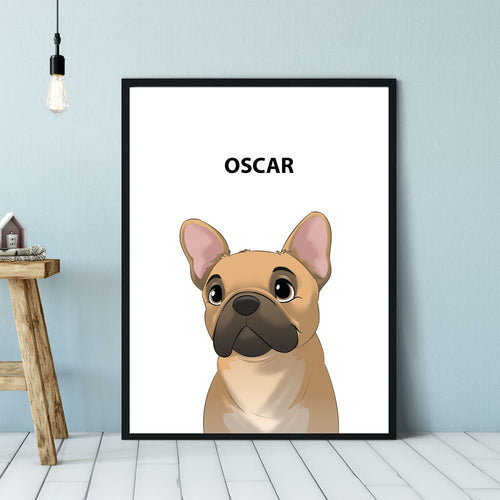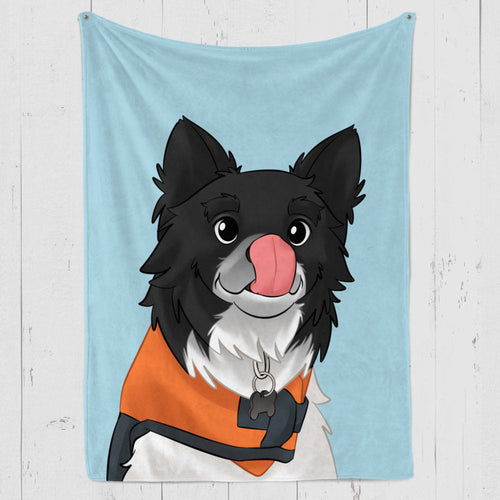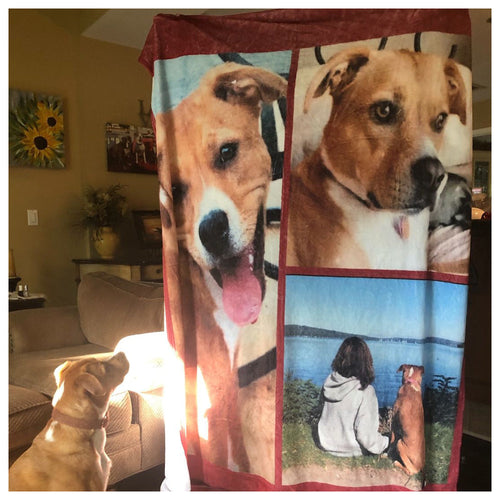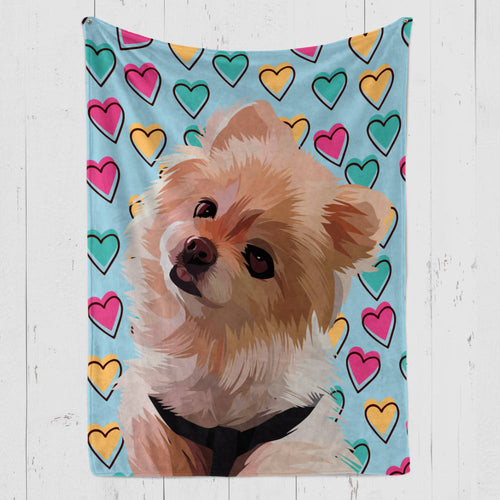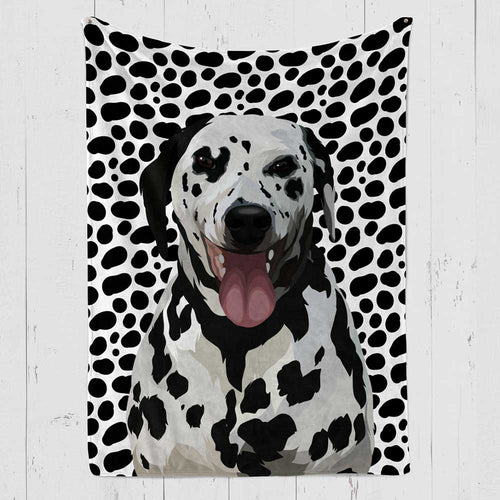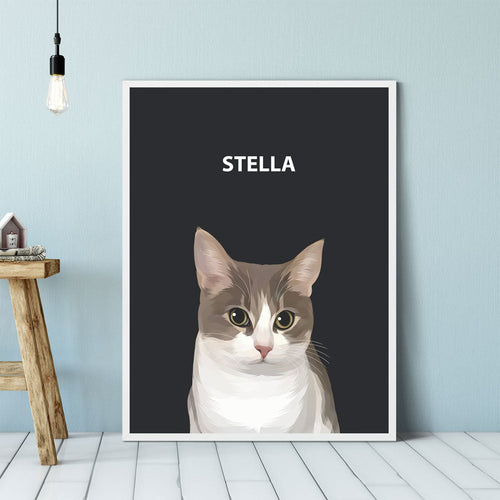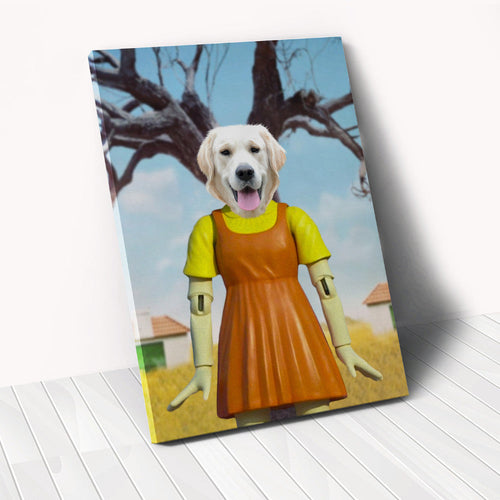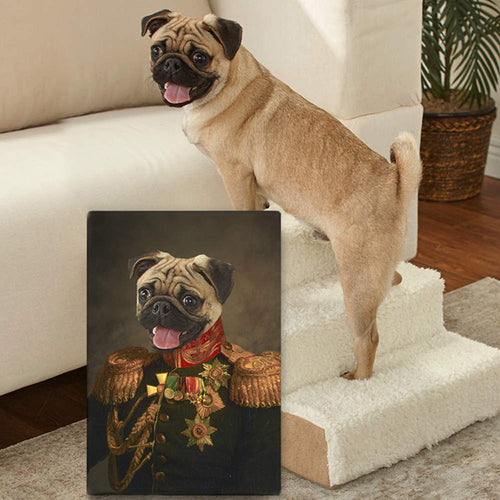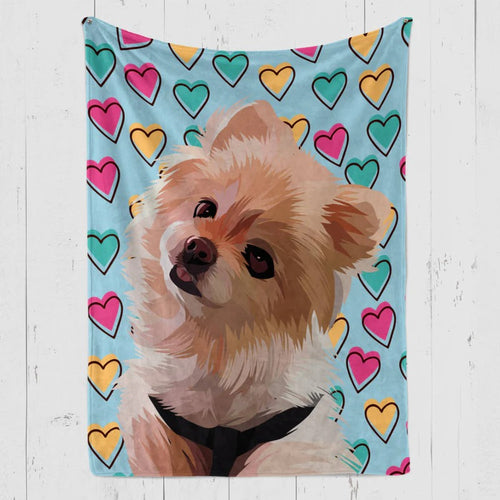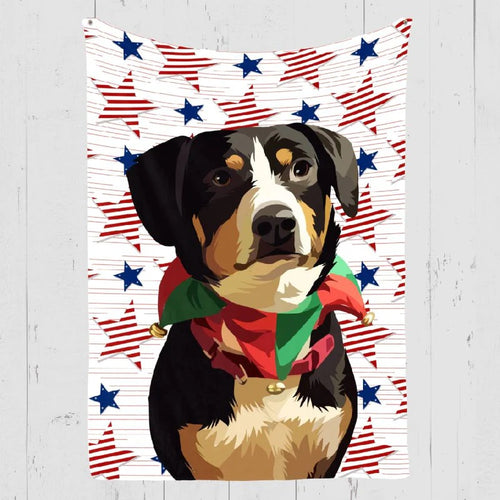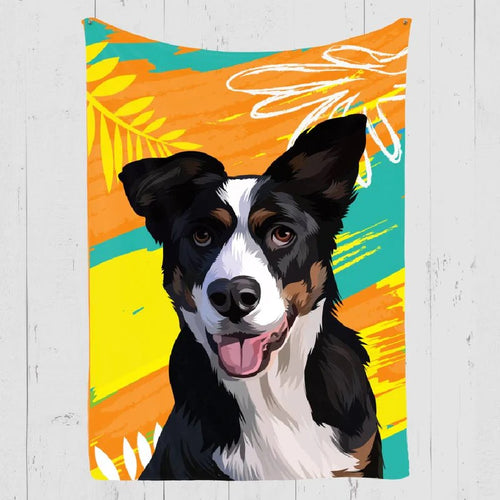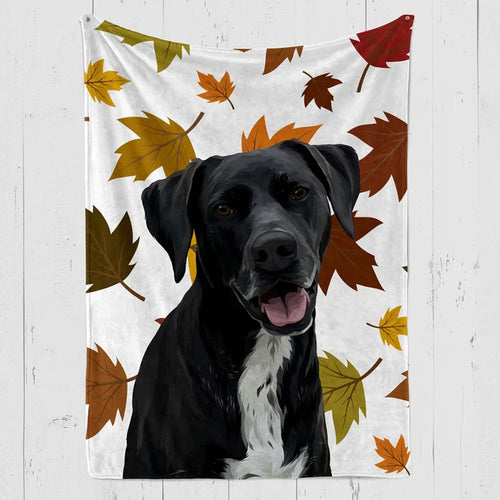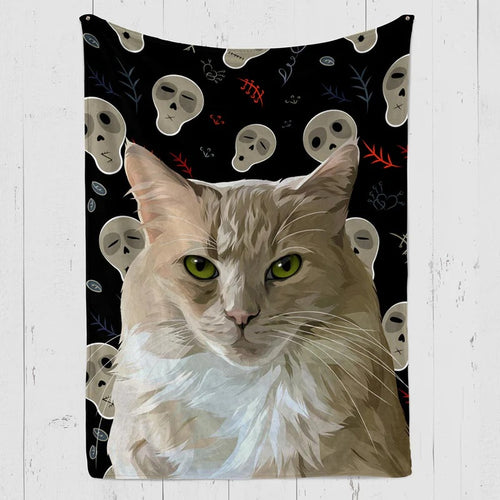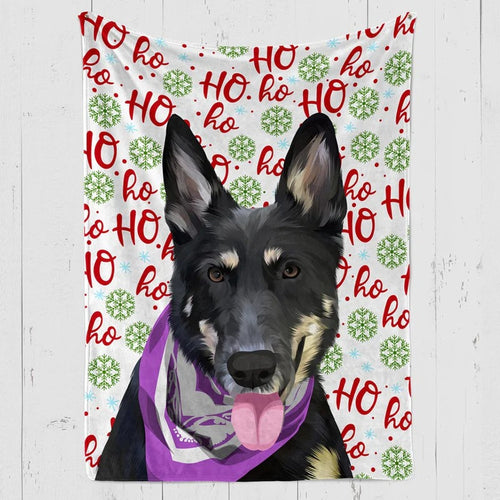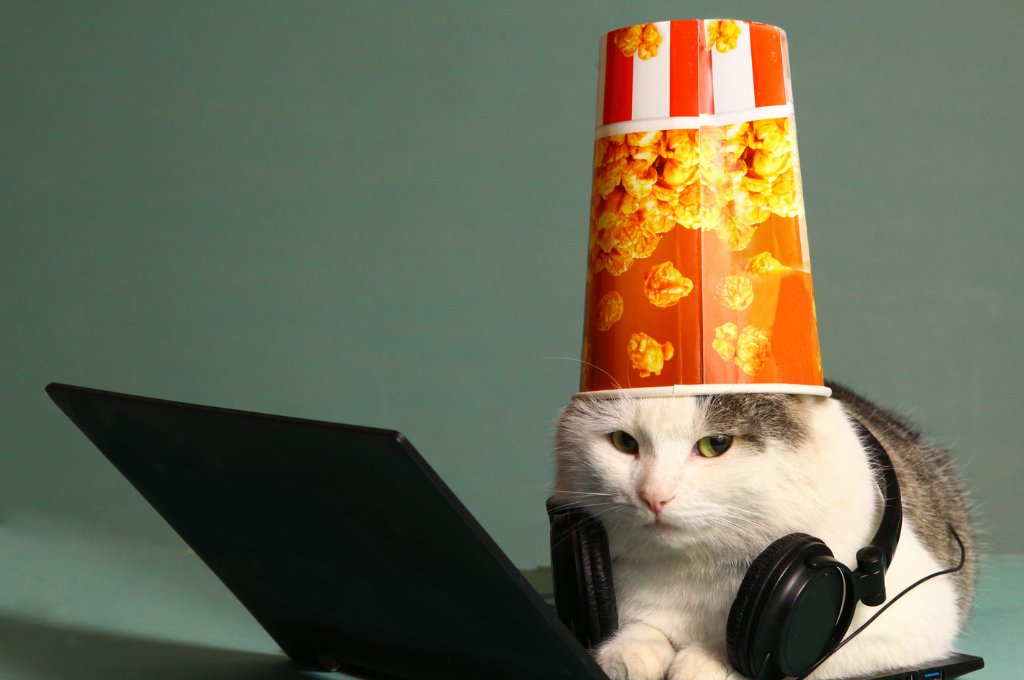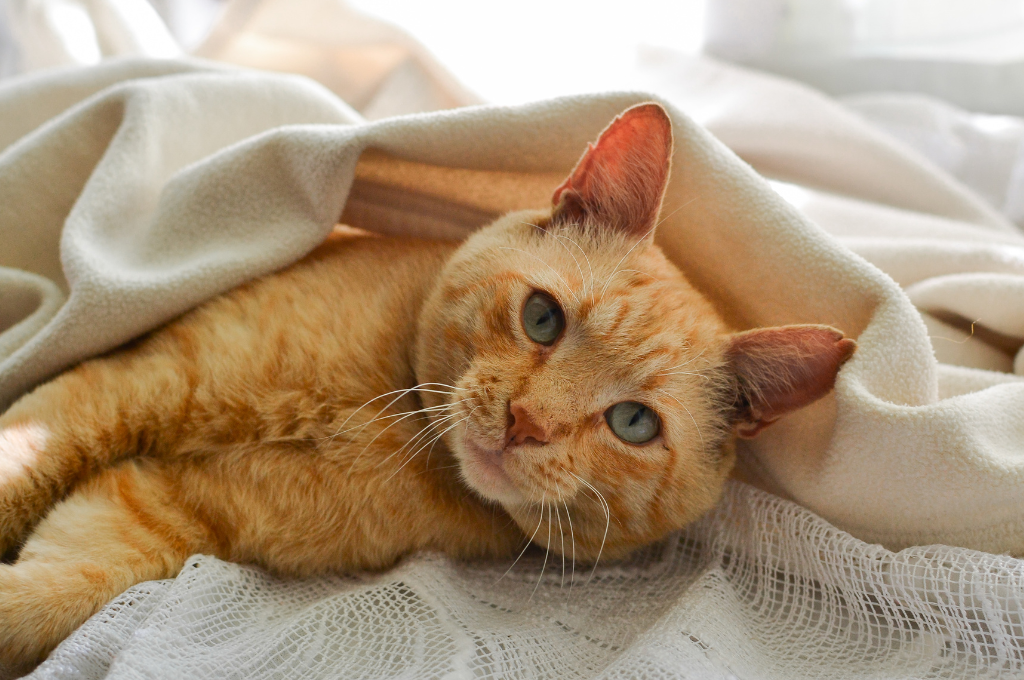
Let's be clear about one thing. If your dog eliminates inside the house, don't punish him. Even if your dog has received potty training, this still holds true. Some people lose their temper on this matter far more quickly than others. It is your duty to direct the dog in the appropriate way if you find yourself in a position where it frequently relieves itself within your home.
You're going to reward your dog for going outside to the toilet rather than punishing them for going inside. Positive reinforcement is an important part of dog training and it functions great for the poop of a position you are in, which more dog owners need to grasp.
What Risks Are Linked With Punishing Your Dog For Doing Poop Inside?
Only when rewards or penalties are immediately and closely (within a half-second) linked to behavior are they effective. When you start shouting, your dog assumes you are screaming at him for what it is he is doing.
Furthermore, you must realize that punishing anyone who is alive is completely unacceptable. Take a look at the following arguments for why you should never, ever punish your dog.
1. Punishment diminishes the relationship
Punishment normally doesn't work to change behavior, and it makes your dog less trusting of you. Have you ever heard someone yell at you?
The next time you saw that person, even if you still liked them, you undoubtedly felt more apprehensive of them. Your dog may be less likely to pay attention to you in general if you have less faith in them.
2. Dogs cannot comprehend your anger
Your dog won't understand why you are screaming at him at 6 o'clock, despite the fact that he pooped in the house at 1 o'clock. He isn't making that connection, even if it happened five minutes ago.
3. Screaming can lead to more serious issues
Some dogs may be more susceptible to problems with submissive urination if they are punished. Your dog will urinate in a submissive manner to signal that he or she poses no threat.
Since they can be shocked by loud sounds or visitors, including their owners, these dogs have a greater tendency to have accidents as they age.
How to Punish Your Dog for Pooping in the House Humanely?
It is never suggested to utilize harsh, cruel punishment tactics with your dog because the word "punishment" is strong. Instead, employing positive reinforcement methods is not only kinder to your dog but also more successful in changing its behavior.
The greatest methods for shaming your dog for pooping in the house are therefore included below.
1. Neglect them for a while

Dogs are known to be attention-seekers; in fact, studies have found that when dogs look into their owners' eyes, their oxytocin levels rise. Therefore, if you discover excrement inside the home, don't become upset over it.
Instead, relocate them to a different room, tidy up the area, and continue with your day without giving them any additional attention.
Your dog will observe your shift in behavior, and if you apply this technique consistently, they should quickly learn that you don't like it when they go pooping in the house.
2. Clean up spills completely
If your dog has pooped indoors, the best way is to clean up the mess as soon as possible. This will ultimately help you to get rid of any odor that may still be present.
Use an enzyme cleaner made especially for pet messes to help break down the elements that cause odors. This action is crucial to avoid your dog being drawn to the same location repeatedly.
3. Point out the poop to your dog
Although it goes against the original strategy, the alternate way takes a more logical approach.
If the dog has previously utilized the yard for elimination, it involves exhibiting the dog its poop and transporting them right away to the appropriate potty place.
It is important to maintain your composure throughout this process because yelling at the dog or thrusting its face into the excrement could make it fearful and uneasy of the owner.
It should be emphasized, nevertheless, that there is still some disagreement on this method's efficacy.
5 Causes of Dog pooping In the House
There are several possible causes for a dog to poop inside the house. Recognizing these causes helps make problem-solving more efficient. Here are 5 typical explanations:
1. Medical Grounds

Calling your veterinarian could be a good place to start, especially if your dog has diarrhea or loose feces. When the digestive tract and small or large intestine are inflamed, this could be a symptom of colitis.
Potential reasons include Bacteria, viruses, parasites like roundworms, hookworms, and giardia, inflammatory bowel disease, bowel cancer, and food intolerance or allergy
It is possible that your dog may be suffering from any other past medical issue. Therefore, it is completely understandable to take this factor into consideration.
2. Aging
Have you observed that as your dog ages, they poop more inside the house? It's not just you. Fecal diarrhea or a loss of bowel control is a common problem in older dogs. This is why:
They are unable to "hold it" as they formerly could. They can require more toilet trips as they get older. Additionally, the muscles that maintain waste inside their bodies may get weaker.
They neglect to leave. Canine cognitive impairment is a disorder that may affect your elderly dog. It is comparable to human Alzheimer's disease. On hikes, they might not remember what to do, come inside, and poop. Ask your veterinarian or a pet psychologist about available treatments.
3. Too long spent inside the house
When dogs need to go outside but have been inside the home for too long, accidents may occur. While the type and quantity of food your dog is consuming will affect how often they poop, most dogs need to go one to two times each day. A dog who consumes a diet rich in fiber might need to go potty three times each day.
4. Separation Anxiety
Your dog may develop separation anxiety if it becomes anxious when you leave the house. Scratching at windows and doors, damaging chewing, howling or whimpering, and going potty within the house are all warning signs.
This frightened reaction occurs for various canines for various causes. Some people don't like being by themselves. Others struggle with routine changes. There are things you may take to decrease the issue, whatever the source may be:
- Don't make a big deal out of leaving or returning.
- Ask your veterinarian about over-the-counter sedatives.
- Consult your veterinarian about prescription anxiety-reducing medications.
- Keep your dog in an area with windows and toys to minimize the damage.
- Leave some recently worn clothing for your dog. Your scent may help people relax.
5. Dietary modification
When their food changes frequently, dogs may become ill, which could result in accidents in the home. When switching your dog's diet, it's ideal to gradually introduce a little bit of fresh food into their current diet over the course of seven days (or longer) to avoid giving them an upset stomach.
Techniques for Preventing Dog Poop in the House
Make sure to cross the following items off your list if you're unsure of what's causing your dog to relieve himself in unsuitable places:
1. Create a dedicated toilet space

Your dog should use a designated location in your yard to relieve himself. Use cues like a particular command or word to signal to your dog when it's time to go potty there on a regular basis. They can now see where they ought to go thanks to this.
2. House-train your pet
Take your puppy or recently adopted adult dog for frequent and regular walks. Start by going for a stroll or visiting the garden at least twice every two hours (more often for peeing! ), particularly after playing, training, taking naps, and eating.
If your dog is scared, be aware that he will feel more at ease doing potty in a calmer, less crowded environment. Depending on their origin, dogs may have preferences for certain types of substrate.
3. Regular physical activity and mental stimulation
Make certain that your dog gets enough mental and physical exercise. A dog that is exhausted is too small to have excessive energy and cause mishaps. To keep them both occupied and active, involve them in pastimes like walks, playing, and puzzle toys.
4. Avoid punishment
Punishing your dog for using the restroom indoors won't stop him from doing it again, especially if the stress was the reason for the inappropriate elimination.
Furthermore, if you discipline your dog, he can learn to prevent pooping in proximity to you altogether, even when you're out on a walk, out of fear of your punishment.
Takeaway
Keep in mind to ask oneself the previous questions. It might be difficult to decide how to punish dogs for pooping in the house. The only option, though, when it comes to instruction, is to remain composed and patient. This guidance should help you quickly have a well-behaved dog. It might be really annoying when your dog poops in your home, but with patience and empathy on your part, you'll succeed in the end.
Frequently Asked Questions
How can I stop my dog from going potty inside the house?
Establish a regular schedule for toilet breaks, keep an eye on your dog, encourage outdoor elimination with positive reinforcement, and correctly house-train them to avoid accidents inside.
What actions should I take if my dog has an indoor accident?
If your dog has an indoor accident, clean it up right away without reprimanding him. Put your attention back on regular bathroom breaks, emphasize the benefits of outdoor elimination, and look for any underlying problems.
How can I strengthen good bowel habits?
Establishing a regular schedule, reinforcing outdoor evacuation with praise and food, employing cues or orders, and giving a separate potty space are all ways to reinforce good evacuation habits.
What if my dog frequently poop-pees inside?
Consult a veterinarian if your dog frequently goes potty indoors to rule out any medical problems. To prevent accidents, evaluate your training strategies and consistency, think about hiring an expert, and make sure suitable management and oversight are in place.
Sources (Website Name And Links)
- https://pawsafe.com/blogs/dog-training/how-to-punish-a-dog-for-pooping-in-the-house
- https://www.oodlelife.com/how-to-punish-your-dog-for-pooping-in-the-house/
- https://www.mypetchild.com/dogs/training/pooping-in-house/
- https://notabully.org/how-do-you-punish-a-dog-for-pooping-in-the-house/
Recommended Articles :
Similar Articles
Latest Review on Woof Blankets
To have such a masterpiece by my side every day is a gift for me and my memories with Rex. Thank you WoofBlankets for such an opportunity to recreate his image on a blanket.Lara o’ Miguel US, California
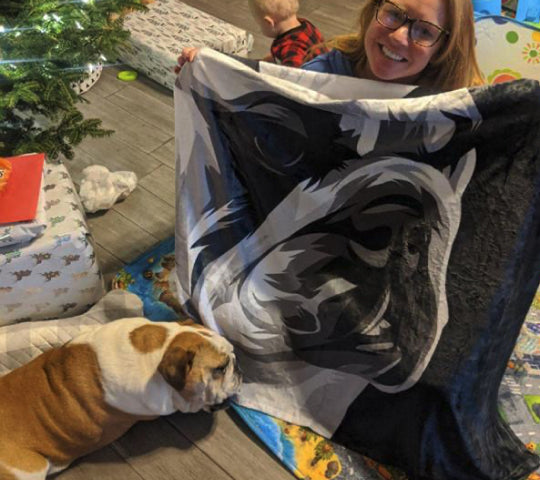
COLLECTION WORTH EVERY PENNY
BEST SELLERS
-
Woofy Single Color Custom Pet Blanket
![Woofy Single Custom Pet Blanket – Woof Blanket]()
- -41%
BlanketsSHOP NOW- Regular price
- from $64.95
- Sale price
- from $64.95
- Regular price
-
$109.95 - Unit price
- per
Sold out -
The French Sailor - Custom Pet Portrait
![]()
- -25%
CanvasSHOP NOW- Regular price
- from $59.95
- Sale price
- from $59.95
- Regular price
-
$79.95 - Unit price
- per
Sold out -
Summer Time Custom Pet Blanket
![Summer Time Custom Pet Blanket]()
- -39%
BlanketsSHOP NOW- Regular price
- from $69.95
- Sale price
- from $69.95
- Regular price
-
$114.95 - Unit price
- per
Sold out -
Pet Memorial Custom Photo Collage Blanket
![Personalized pet memorial quilt with photos]()
- -41%
BlanketsSHOP NOW- Regular price
- from $64.95
- Sale price
- from $64.95
- Regular price
-
$109.95 - Unit price
- per
Sold out -
4th of July Custom Pet Blanket
![4th of July Custom Pet Blanket Online]()
- NEW
- -39%
BlanketsSHOP NOW- Regular price
- from $69.95
- Sale price
- from $69.95
- Regular price
-
$114.95 - Unit price
- per
Sold out -
Modern Pet Portraits
![Cute Dog Modern Pet Portraits Online]()
- NEW
- -36%
CanvasSHOP NOW- Regular price
- from $59.95
- Sale price
- from $59.95
- Regular price
-
$93.95 - Unit price
- per
Sold out -
The Admiral - Custom Pet Portrait
![The Admiral - Custom Pet Portrait Online]()
- NEW
- -25%
CanvasSHOP NOW- Regular price
- from $59.95
- Sale price
- from $59.95
- Regular price
-
$79.95 - Unit price
- per
Sold out -
Woof Splash Custom Pet Blanket
![Woof Splash Custom Pet Blanket]()
- -39%
BlanketsSHOP NOW- Regular price
- from $69.95
- Sale price
- from $69.95
- Regular price
-
$114.95 - Unit price
- per
Sold out -
The Policeman - Custom Pet Portrait
![]()
- NEW
- -25%
CanvasSHOP NOW- Regular price
- from $59.95
- Sale price
- from $59.95
- Regular price
-
$79.95 - Unit price
- per
Sold out -
The General - Custom Pet Portrait
![]()
- NEW
- -25%
CanvasSHOP NOW- Regular price
- from $59.95
- Sale price
- from $59.95
- Regular price
-
$79.95 - Unit price
- per
Sold out -
Woof Love Custom Pet Blanket
![Woof Love Custom Pet Blanket]()
- -39%
BlanketsSHOP NOW- Regular price
- from $69.95
- Sale price
- from $69.95
- Regular price
-
$114.95 - Unit price
- per
Sold out -
The Ambassador - Custom Pet Portrait
![The Ambassador - Custom Pet Portrait Online]()
- NEW
- -25%
CanvasSHOP NOW- Regular price
- from $59.95
- Sale price
- from $59.95
- Regular price
-
$79.95 - Unit price
- per
Sold out -
Fall In Love Custom Pet Blanket
![Fall In Love Custom Dog Blanket]()
- NEW
- -39%
BlanketsSHOP NOW- Regular price
- from $69.95
- Sale price
- from $69.95
- Regular price
-
$114.95 - Unit price
- per
Sold out -
Cartoonized Pet Portraits (New)
![Cartoonized Pet Custom Portraits Online]()
- -36%
SHOP NOW- Regular price
- from $59.95
- Sale price
- from $59.95
- Regular price
-
$93.95 - Unit price
- per
Sold out -
The Classy Lady - Custom Pet Portrait
![The Classy Lady]()
- NEW
- -25%
CanvasSHOP NOW- Regular price
- from $59.95
- Sale price
- from $59.95
- Regular price
-
$79.95 - Unit price
- per
Sold out -
The Duke - Custom Pet Portrait
![The Duke - Custom Pet Portrait]()
- NEW
- -25%
CanvasSHOP NOW- Regular price
- from $59.95
- Sale price
- from $59.95
- Regular price
-
$79.95 - Unit price
- per
Sold out -
Dog In Suit- Custom Pet Portrait
![Dash Dog In Suit- Custom Pet Portrait Online]()
- NEW
- -25%
CanvasSHOP NOW- Regular price
- from $59.95
- Sale price
- from $59.95
- Regular price
-
$79.95 - Unit price
- per
Sold out -
The Princess - Custom Pet Portrait
![]()
- NEW
- -25%
CanvasSHOP NOW- Regular price
- from $59.95
- Sale price
- from $59.95
- Regular price
-
$79.95 - Unit price
- per
Sold out -
Modern Pet Portrait with One Mug
![Modern Pet Portrait with One Mug]()
- -25%
Print MaterialSHOP NOW- Regular price
- from $99.95
- Sale price
- from $99.95
- Regular price
-
$133.95 - Unit price
- per
Sold out -
The Aristocrat - Custom Pet Portrait
![The Aristocrat - Custom Pet Portrait At Best Price]()
- NEW
- -25%
CanvasSHOP NOW- Regular price
- from $59.95
- Sale price
- from $59.95
- Regular price
-
$79.95 - Unit price
- per
Sold out -
Single Color Custom Blanket with 1 Mug
![Single Color Custom Blanket with 1 Mug]() BlanketsSHOP NOW
BlanketsSHOP NOW- Regular price
- from $99.95
- Sale price
- from $99.95
- Regular price
-
- Unit price
- per
Sold out -
Single Color Custom Blanket with 2 Pillows
![Single Color Custom Pet Blanket with 2 Pillows]()
- -21%
BlanketsSHOP NOW- Regular price
- from $99.95
- Sale price
- from $99.95
- Regular price
-
$125.95 - Unit price
- per
Sold out -
The Dog in Suit Custom Pet Mug
![]()
- -20%
MugsSHOP NOW- Regular price
- $39.95
- Sale price
- $39.95
- Regular price
-
$49.95 - Unit price
- per
Sold out -
Angel Custom Pet Mug
![]()
- -20%
MugsSHOP NOW- Regular price
- $39.95
- Sale price
- $39.95
- Regular price
-
$49.95 - Unit price
- per
Sold out -
This Human Belongs To - Custom Pet Mug
![]()
- NEW
- -20%
MugsSHOP NOW- Regular price
- $39.95
- Sale price
- $39.95
- Regular price
-
$49.95 - Unit price
- per
Sold out -
It's Not Dog Hair Custom Pet Mug
![]()
- NEW
- -20%
MugsSHOP NOW- Regular price
- $39.95
- Sale price
- $39.95
- Regular price
-
$49.95 - Unit price
- per
Sold out -
My Dog Is My Valentine Custom Pet Mug
![]()
- NEW
- -20%
MugsSHOP NOW- Regular price
- $39.95
- Sale price
- $39.95
- Regular price
-
$49.95 - Unit price
- per
Sold out -
3 Photos With Message Custom Pet Mug
![]()
- NEW
- -20%
MugsSHOP NOW- Regular price
- $39.95
- Sale price
- $39.95
- Regular price
-
$49.95 - Unit price
- per
Sold out -
My Valentine Has Four Legs- Personalized Mugs
![]()
- NEW
- -20%
MugsSHOP NOW- Regular price
- $39.95
- Sale price
- $39.95
- Regular price
-
$49.95 - Unit price
- per
Sold out -
Dog Mamma Custom Pet Coffee Mug
![]()
- -20%
MugsSHOP NOW- Regular price
- $39.95
- Sale price
- $39.95
- Regular price
-
$49.95 - Unit price
- per
Sold out -
Uncle Sam - Custom Pet Portrait
![]()
- NEW
- -25%
CanvasSHOP NOW- Regular price
- from $59.95
- Sale price
- from $59.95
- Regular price
-
$79.95 - Unit price
- per
Sold out -
The Revolutionary Emperor - Custom Pet Portrait
![]()
- NEW
- -25%
CanvasSHOP NOW- Regular price
- from $59.95
- Sale price
- from $59.95
- Regular price
-
$79.95 - Unit price
- per
Sold out -
The Princess Paws - Custom Pet Portrait
![]()
- -25%
CanvasSHOP NOW- Regular price
- from $59.95
- Sale price
- from $59.95
- Regular price
-
$79.95 - Unit price
- per
Sold out -
Exclusive Custom Pet Blanket
![Exclusive Custom Pet Blanket]()
- -39%
BlanketsSHOP NOW- Regular price
- from $69.95
- Sale price
- from $69.95
- Regular price
-
$114.95 - Unit price
- per
Sold out -
The Dark Crusader Knight - Custom Pet Portrait
![]()
- -25%
CanvasSHOP NOW- Regular price
- from $59.95
- Sale price
- from $59.95
- Regular price
-
$79.95 - Unit price
- per
Sold out

